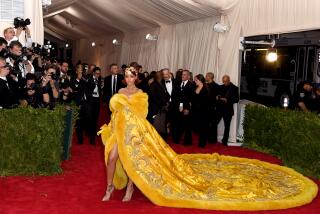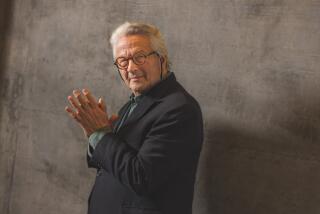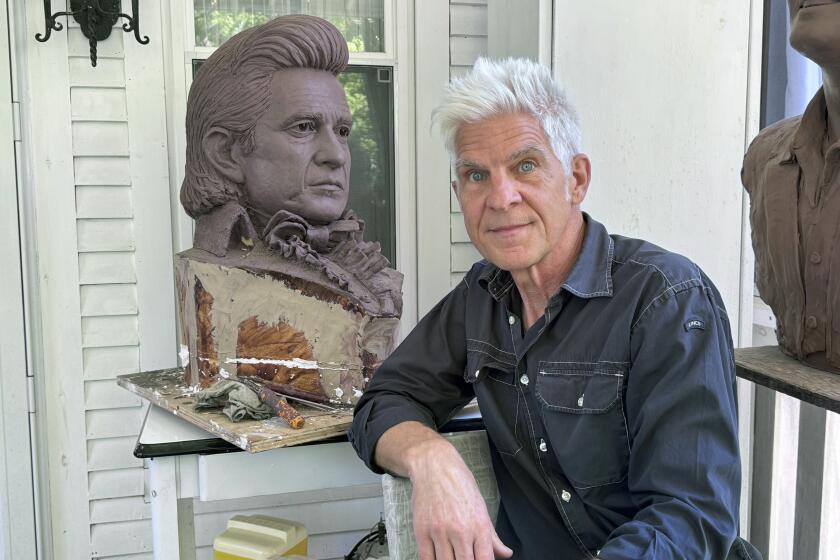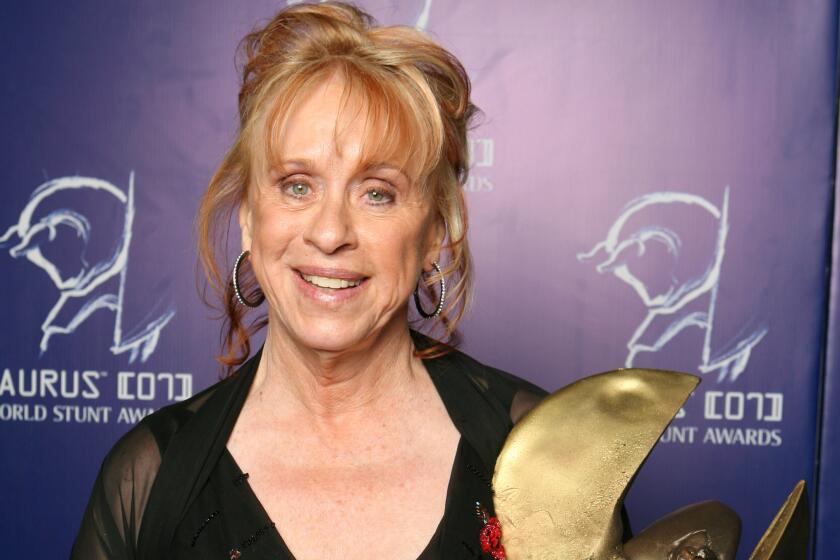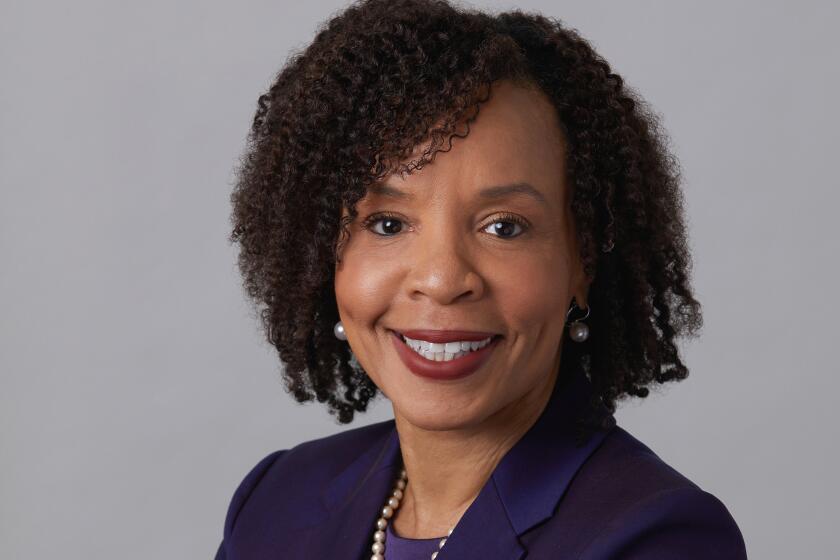Digital TV’s Advance Leaves Public Behind
When in doubt, form an advisory panel.
And so it is that the Clinton administration last week dodged the most politically charged aspect of the convoluted, decade-long effort to develop an advanced television broadcasting system.
The newly proposed panel--which will include TV industry executives, government officials, academics and others--will recommend what sort of public interest requirements TV broadcasters must fulfill in exchange for receiving, free of charge, the frequencies needed for high-tech digital TV.
It’s possible to see this development as a glass half full. The White House has now stated clearly that broadcasters will have to do something--devote more time to children’s programs, for example, or offer free air time for political candidates--in exchange for the valuable digital TV channels.
Yet if the history of the advanced television policy-making process is any guide, the advisory panel will simply serve as a vehicle for broadcasters to delay and ultimately avoid meaningful public interest rules.
Indeed, while the panel spends a year or more rehashing issues that all the major players understand quite well by now, the Federal Communications Commission will go ahead and issue the new digital TV
licenses this spring, with only a promise that public interest requirements will be specified at a later date.
Somehow, that doesn’t sound like a good formula for assuring the public a fair deal.
Sadly, though, giving the public a fair deal has never been the priority when it comes to advanced television. Ever since the mid-1980s, when TV and electronics industry officials began sounding the alarm about the alleged Japanese threat inherent in a new technology known as HDTV, or high-definition television, the politics of advanced TV have revolved around the business interests of the politically powerful broadcasters.
At the beginning, as journalist Joel Brinkley recounts nicely in his new book, “Defining Vision: The Battle for the Future of Television,” the broadcasters’ concern about the issue didn’t have anything to do with advanced television at all. Rather, they were trying to prevent the FCC from reallocating some TV spectrum to land-mobile radio (think police dispatch systems), and they alighted on HDTV as the reason they needed to keep the spectrum.
Developed in Japan, HDTV would provide cinema-quality pictures and stereo-quality sound on a new kind of souped-up TV set--and would also require more broadcasting frequencies. But adopting the Japanese technology might give Japan Inc. a leg up in what promised to be a big new market for HDTV gear.
So, in the late 1980s, the FCC set up a competition to develop a home-grown system. A handful of companies lined up for the chance to set a new standard--and broadcasters were able to cite HDTV as a reason to reserve spectrum, even though they had little interest in introducing it.
Then one of the competing companies, General Instrument Corp., figured out a way to do HDTV using digital computer codes, rather than traditional radio signals--a major breakthrough. The FCC was developing a plan under which broadcasters would get new channels for HDTV signals, but with digital technology, people started thinking about what else they might do with those channels.
They could send an HDTV signal, sure, but they could also send six standard-definition signals, or set up a paging service, or sell subscription television channels. And suddenly, it began to occur to some in Washington that it didn’t make sense simply to give away spectrum that offered such exciting profit possibilities.
The government had raised billions auctioning off mobile communications frequencies. Why not auction the digital TV frequencies too? True, the broadcasters were supposed to give back the frequencies they currently use in 10 to 15 years, after everyone had a new digital television set, but even a 10-year TV license has value, and the details of the give-back were vague and distant.
But when presidential candidate Bob Dole began making noises last year about auctioning the digital TV spectrum, the broadcasters quickly squelched the threat.
Auctions would endanger the cherished American tradition of free TV, the broadcasters cried. (Never mind that broadcast TV is “free,” i.e., advertising-supported, only because that’s the most profitable thing to do.)
We’re not being given the licenses anyway, they said, it’s only a loan (but a valuable one nonetheless, with no fixed payback period). We really do want to do HDTV, they insisted. (Don’t anyone dare actually require HDTV, though.) Digital TV is really a high-risk business, they claimed. (But that doesn’t mean we want to anyone else to take the risk.)
And finally, as former National Assn. of Broadcasters lobbyist John Abel alleges somewhat desperately, it’s only newspaper people who favor an auction, because free TV competes with newspapers, and besides, the government helped newspapers with the Newspaper Preservation Act (as if that had anything to do with digital TV).
In the end, of course, it was the raw political clout of the broadcasters--no congressman wants to be on the wrong side of the local TV station--that carried the day. Congress would have to authorize a spectrum auction, and that wasn’t--and isn’t--going to happen, despite occasional rumblings to the contrary from Capitol Hill.
Even FCC Chairman Reed Hundt, an auction enthusiast, acknowledged in a recent interview that there would be no sale: “We have to get over that,” he said. Imposing public interest requirements in exchange for the licenses is thus already a compromise, the next best thing to a sale.
The FCC has completed the first part of the digital TV proceedings by establishing technical standards, and is now poised to issue final orders on individual channel assignments and on the rules establishing what can be done with the channels.
Hundt had hoped to at least reestablish the principle--lost during the Reagan administration--that TV broadcasters have to do something for the public in exchange for their right to use the public airwaves. Nothing too serious, mind you, maybe 5% of the broadcast day devoted to children’s TV and political debate.
Even that elicits from broadcasters a frenzy of rhetoric about 1st Amendment rights and possible lawsuits--and Hundt didn’t have the support he needed from fellow FCC commissioners to push it through anyway.
Now, within the comfortable confines of an advisory panel, Disney/ABC and Time Warner and NBC and the rest will have plenty of time to hone their arguments and marshal their lobbyists. We can only hope that Vice President Al Gore, who proposed formation of the panel, will somehow assure that the public gets its due too.
*
Cutting Edge editor Jonathan Weber can be reached via e-mail at jonathan.weber@latimes.com
More to Read
The biggest entertainment stories
Get our big stories about Hollywood, film, television, music, arts, culture and more right in your inbox as soon as they publish.
You may occasionally receive promotional content from the Los Angeles Times.
